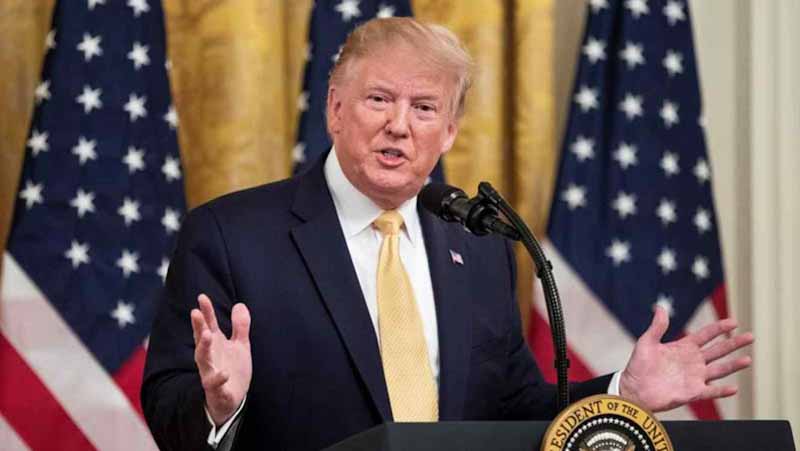The Federal Court of Appeals of the Ninth Circuit granted Friday to President Donald Trump a legal victory in his attempts to suppress “sanctuary cities” that protect undocumented immigrants.
The court, which is headquartered in San Francisco, ratified the Department of Justice’s decision to give priority to granting subsidies for community policing actions to localities that cooperate with immigration authorities.
With a vote in favor of 2 against 1, the court indicated that granting extra points in the application process to the cooperating cities is consistent with the objectives of the subsidy program created by Congress. In this way, the court revoked a mandate of national scope issued by a federal judge in Los Angeles.
Sources of the Department of Justice assured in an official notice sent by electronic mail that “they were pleased” with this decision.
“This ruling reverses an illegal decision that favored sanctuary cities policies, endangering the safety and protection of all Americans,” the White House said hours later.
“We urge citizens throughout the US to demand that Democratic leaders cease their support for the sanctuary policies that deprive Americans of life, physical integrity and freedom.”
In the past, federal courts had blocked some government attempts to prevent access to resources by sanctuary cities. These include an executive order from the president issued in 2017 that prohibited them from receiving federal grants unless they were necessary funds for police activities.
The courts also barred the Department of Justice from imposing new conditions related to immigration control to the Byrne Memorial Justice Assistance Grants, the largest source of federal funding for state and local jurisdictions.
The ruling this Friday was related to a different program, which consists of subsidies used to hire more agents. It is known as a Community Oriented Police Services Plan (COPS).
Previously, the Department of Justice used to give extra points to cities that agree to hire veterans, or that have early intervention systems in place to identify agents with personal problems, or who have suffered school shootings.
In 2017, the Justice Department, then headed by Jeff Sessions, decided to grant extra points for the first time to cities that consider compliance with immigration laws a priority.
It also determined that those who certify that they would cooperate with the federal immigration authorities would be given priority to allow them access to detainees in local jails and warn them 48 hours in advance in case they release an undocumented immigrant.
This year, the Los Angeles administration applied for the grant, but refused to indicate the issue of immigration control as a priority. He did not obtain the funds, and he sued, alleging that the Department of Justice had introduced conditions that did not provide an alternative to having to comply with the federal immigration law and that these requirements had nothing to do with the objectives determined by Congress when launching that aid plan.
The judges of the majority, Sandra Ikuta and Jay Bybee, both appointed by former Republican President George W. Bush, rejected these arguments, considering that applying federal immigration laws is a purpose consistent with the objectives of ensuring citizen security within the country. a community.
Judge Kim Wardlaw, appointed by former Democratic President Bill Clinton, did not agree, because he thought that the subsidies of the COPS program have nothing to do with the issue of immigration. The Los Angeles City Prosecutor’s Office has still not responded to an email from The Associated Press with a request for comment.
Supporters of sanctuary cities say that encouraging local police to participate in the enforcement of federal immigration law is counterproductive, because they consider people less likely to report crimes if they believe they will be deported for doing so.

